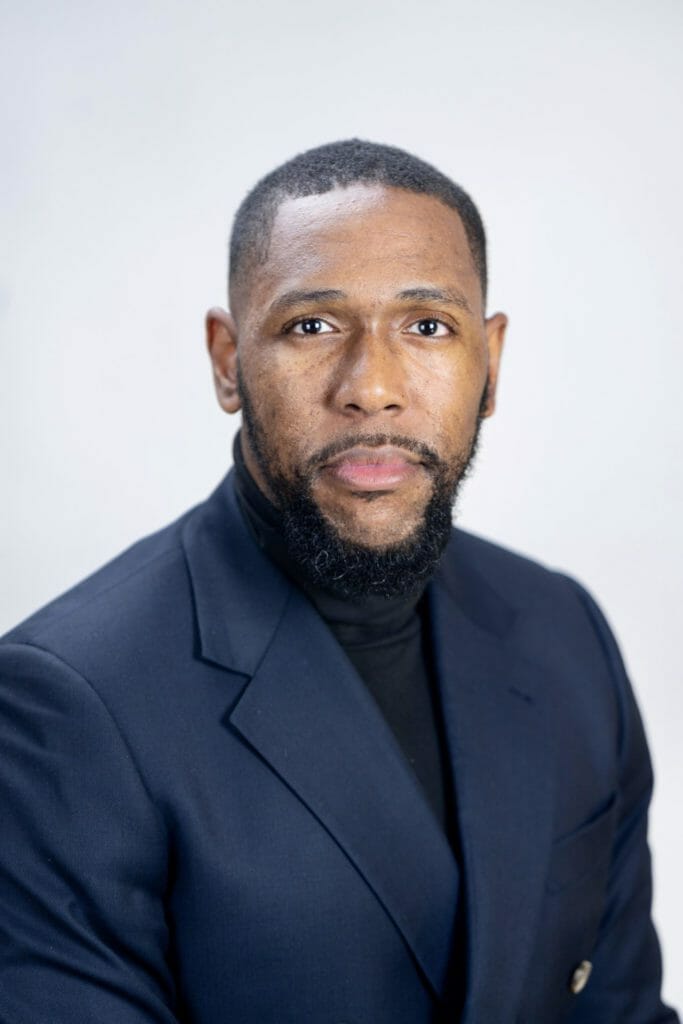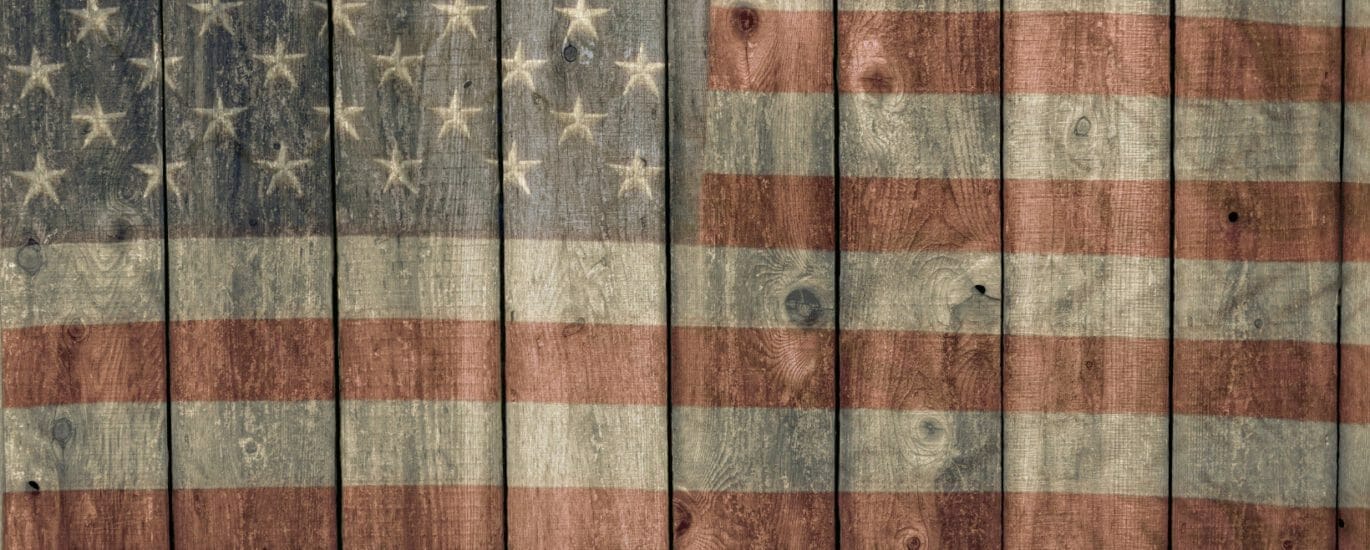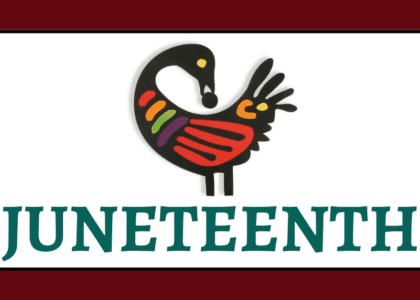By Darrell Hamiilton
In 1892, Francis Bellamy penned and published what would eventually be titled “The Pledge of Allegiance of the United States.” Bellamy wrote the pledge to commemorate the four-hundred-year anniversary of Christopher Columbus’ arrival in the Americas. Additionally, to inspire pride and patriotism among school aged youth and re-ignite dedication and loyalty to America through a grand retelling of its history.
The pledge has ingrained a sense of loyalty and patriotism among many generations of American citizens. However, it is also shrouded in a problematic nationalist history including genocide, theft of indigenous land and resources, and enslavement of indigenous peoples. Likewise, a history inspired and informed by the biblical tradition.
The book of Joshua details what the Bible claims was a seven-year campaign of the land of Canaan by the Hebrew people. The campaign reportedly consisted of mass murder, mass theft, and mass displacement of indigenous people as Joshua leads the descendants of Abram to claim land that was “promised” to him and his descendants (Josh. 6:18-25; Gen. 12 & 15).
After, Joshua gathers all of Israel at Shechem and calls them to pledge their allegiance to God prior to settling the land. “Now, therefore, revere the Lord and serve him in sincerity and in faithfulness; put away the gods that your ancestors served beyond the River and in Egypt and serve the Lord. 15 Now if you are unwilling to serve the Lord, choose this day whom you will serve, whether the gods your ancestors served in the region beyond the River or the gods of the Amorites in whose land you are living, but as for me and my household, we will serve the Lord” (Joshua 24:14-15 NRSV).
The Oxford legal dictionary defines pledging allegiance as proclaiming one’s “obligation of fidelity and obedience to government in consideration for protection that government gives.” Therefore, Joshua gathering the descendants of Abram at Shechem is where they are to pledge their fidelity and obedience to God in consideration for the protection God has given. Yet, the historic identity of the Hebrew people, once known as immigrants in a foreign land, becomes identified with colonizers and settlers in a foreign land as the name of God is used as a political and theological cover to obscure decades of military occupation in Canaan.
For instance, the name of God is used to justify the murder of thousands of Canaanite people. Particular retellings of the nation’s history obscure the plundering of wealth and resources of which the Israelite nation was built. Generations were taught to regard any criticism of an extremist, Zionist government politic to settle Canaanite land as antisemitic. As Osage scholar and writer, Robert Warrior, names, this is the political and theological inheritance of the United States, as the violent and destructive takeover of Canaanite land gave license for the violent and destructive takeover of American indigenous land by means of a doctrine of discovery.The doctrine of discovery originates from a papal bull by Pope Alexander VI “to colonize the Americas and its Native peoples as subjects [and] asserts the rights of Spain and Portugal to colonize, convert, and enslave” any and all non-Christian nations as a right and mandate from God. The doctrine of discovery leads directly to manifest destiny and is the inheritance of our national independence. Making all the more poignant, Fredrick Douglass’s question asking, “What to the Slave is the Fourth of July?”
But harkening to the text in Joshua, and in light of the problematic circumstances we find ourselves in, it is incumbent on the Church to heed Joshua’s call to the Hebrew people and “choose this day who we will serve.” In other words, where lies our highest allegiance? Where is our ultimate loyalty and fidelity? To what is our pledge of allegiance?
When the grand retelling of our national story no longer wishes to teach the experience of African people stolen from their native land, stripped of their language and culture, having no say in the condition of their arrival in the Americas, but are made to pay the cost of the nation’s sins, its greed, its pride, its gluttony, its sloth, and its lust, on the backs of indigenous people…What to the slave is the Fourth of July?
What to the Cherokee, Arapaho, Comanche, Apache, Mashpee Wampanoag, Massachusett, Nipmuc, Mohican is the Fourth of July when the United States’ independence is had by way of the subjugation of indigenous people, resources, and land that has been sacralized and sanctified by blood, sweat, and a trail of tears of indigenous people?
What is the Fourth of July when the military of the United States is used to topple and undermine sovereign governments and grassroots revolutionary movements both abroad and at home?
What is the Fourth of July when the government of the United States claims to be champions of democracy but financially undergirds an apartheid regime known as the State of Israel?
What is the Fourth of July when our nation’s future is held hostage to a dumpster fire of a two-party system leaving us with nothing but the false choice of a “neo-fascist, Republican Party” or “milquetoast neo-liberal Democratic Party.” Albeit, both parties being puppets to corporate interest rather than the will of the people.
What is the Fourth of July when the Supreme Court is spearheaded by an “Uncle Tom” who insults the very affirmative actions he used to build his career. An “Uncle Tom” who spits on the legacy of Fredrick Douglass and insults the seat of Thurgood Marshall. An “Uncle Tom” who was confirmed to the Supreme Court by the sitting President, assassinated the character of Anita Hill, and has assassinated our democracy.
But harkening to the text in Joshua, and in light of the problematic circumstances we find ourselves in, it is incumbent on the Church to heed Joshua’s call to the Hebrew people and “choose this day who we will serve.” In other words, where lies our highest allegiance? Where is our ultimate loyalty and fidelity? To what is our pledge of allegiance?
Joshua is wrong in his understanding of God to call for the mass destruction, genocide, and displacement of the Canaanites. However, Joshua is right to call us to examine our nation and ourselves to assess where our allegiance resides.
Joshua gathers all the people at Shechem and echoes the words of Jesus that we cannot serve two masters but that we must choose who we will serve. Is our pledge of allegiance to the gods of Egypt who kept the Hebrew people in bondage? The gods that Jonathan Wilson-Hartgrove names “slaveholder religion.”
Is our allegiance to the gods our ancestors served from the other side of the Atlantic—the gods of a doctrine of discovery and imperialism? The gods whose lies sanction indigenous genocide around the world and African enslavement in the United States?
Is our allegiance to the gods of the white supremacy in whose land we now dwell?
Or will we pledge our allegiance to the God of Truth. The God of Justice. The One True God who hears the cries of God’s people. The One True God who raises up prophets to speak truth to power and lead God’s people to freedom. The God who does not require that our freedom be had at the expense of someone else’s freedom, but whom our faith testifies is the same God who seeks for all people’s freedom.
The God who fed the hungry, healed the sick, calmed the storm, preached good news to the poor, and let all the oppressed go free. The God who we call the Christ. Immanuel. Prince of Peace. Whose coming reign of justice does not require being built on stolen indigenous land using stolen indigenous labor.
I know to whom I pledge my allegiance and his name is Jesus. To Him be glory and honor, and my allegiance forever.
To what is your pledge of allegiance?

Rev. Darrell Hamilton is the Administrative Pastor at First Baptist Church in Jamaica Plain and Protestant Chaplain at Babson College. Rev. Hamilton is an ordained Baptist minister and graduate from Wake Forest School of Divinity where he received his Masters in Divinity in 2017, and earned his degree in Political Science from the University of Central Oklahoma in 2012. His ministry and leadership is centered on advancing diversity, inclusion, and advocacy for the vulnerable and marginalized to inspire our world toward greater justice and love for all people.




Recent Comments